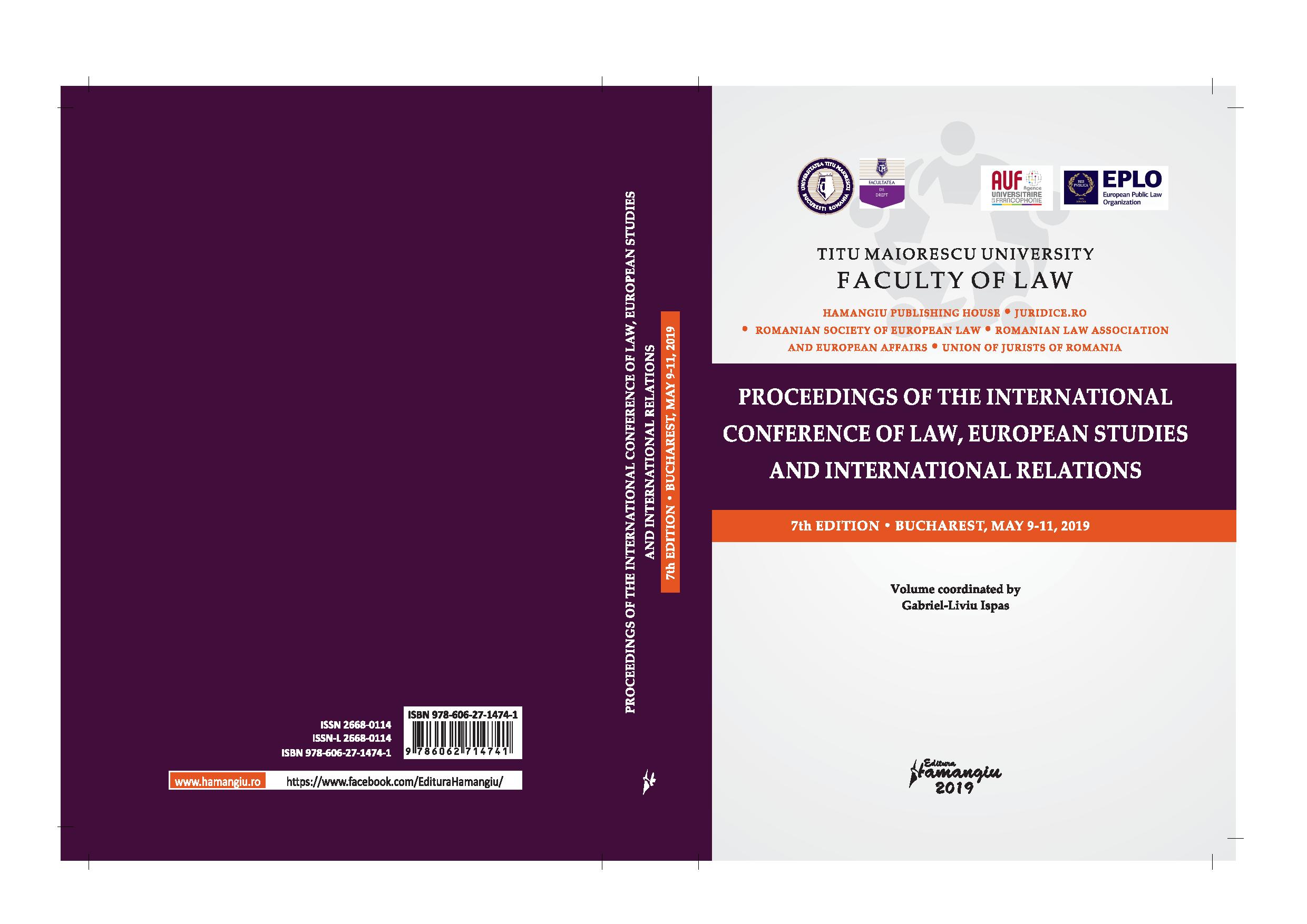The prohibition of discrimination in employment relationships. The principle of equal treatment between women and men in the Romanian legislation and in the European Union legislation
The prohibition of discrimination in employment relationships. The principle of equal treatment between women and men in the Romanian legislation and in the European Union legislation
Author(s): Emin MelisSubject(s): EU-Legislation
Published by: Editura Hamangiu S.R.L.
Keywords: non discrimination; discriminatory phenomenon; the principle of equal treatment; the equality between man and woman; jurisprudence of the European Court of Justice;
Summary/Abstract: The prohibition of discrimination in employment relationships, in terms of the domestic and international and EU regulations is currently a fundamental structural ele¬ment of the Romanian legal system. Both Romanian and the international legislature were constantly concerned about this notion, establishing without a doubt that the term "discri¬mination" is in fact different treatment of employees who are in comparable situations.In employment relationships discriminatory phenomenon may come not only from the employer or from its governing bodies but also from other employees, being difficult to prove on a realm of evidence. The burden of proof is the responsibility of both the person which is considered discriminated, as well as the person accused of discrimination, proof shall be in accordance with the provisions of the common law, more precisely by any means of proof. The courts have the responsibility of settle the operations in the non contractual liability, being the competent authorities to assess to what extent is present or not, the phenomenon of discriminationThe European Court of Justice has held unanimously that in any event there is an appearance of discrimination; the employer is the one who has the duty to prove that the case action is based on objective factors, independent and free of any form of discri¬mination. Of course this concept is one that can be understood in a easy way but, now, the courts are facing a number of difficulties in tracing a boundary between discrimination and non discrimination, this study aiming to analyze the inadequacies of legislation and also to raise other questions on this effervescent topic.
Journal: Conferința Internațională de Drept, Studii Europene și Relații Internaționale
- Issue Year: VII/2019
- Issue No: VII
- Page Range: 66-71
- Page Count: 6
- Language: English

